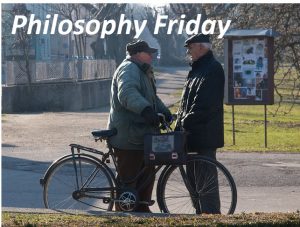
Thank you for joining us for our 5 days per week wisdom and legacy podcast. This is Day 493 of our trek, and today is Philosophy Friday. Every Friday we ponder some of the basic truths and mysteries of life and how they can impact us in creating our living legacy.
Currently we are in a multi-week trek as we explore the teachings from some of my virtual mentors, such as Jim Rohn, Zig Ziglar, and Earl Nightingale. The core of our current trek is based primarily on Jim Rohn’s book called The Five Major Pieces to the Life Puzzle. I have learned a considerable amount from reading and re-reading this book on my own trek of life, and I trust that it will benefit you also. Keeping with the continuity of Wisdom-Trek, I will be adapting it to The Five Trails on Life’s Trek.
We are broadcasting from our studio at The Big House in Marietta, Ohio. When this episode originally airs, we will be in Mesa, Arizona, working with our partners on our construction projects there. We have some crucial decisions to make as we plan for 2017.
There is a needed balance between planning, analyzing logically and realistically, and remaining optimistic. Attitude plays a big factor in the choices and decisions that we make. While our attitude needs to be positive, we also must be realistic.
One crucial element that we often overlook is that how we feel about ourselves is a matter of choice. How we feel about ourselves is strongly influenced by who we invest time with. These are the areas we will explore today as we continue our trek on the Attitude Trail.
If you have missed the past few Philosophy Friday treks, it would be good to go back and review them to get caught up on our progress so far. We have a lot of ground to cover today, so let’s break camp and continue on the second trail of this extended trek as we cover…
How you see yourself is a matter of choice, not circumstances, and the major determining factor in how you feel about yourself lies in your personal philosophy.

If you were to ask some people why they feel the way they do about certain issues, you would probably discover that the reason why they feel the way they do is because they really don’t know a great deal about those issues. Lacking all of the information, they form conclusions based on the bits and pieces that have come their way. With their limited knowledge, they often make poor decisions about how things are. If they knew better, they would think better. In other words, they would reach better conclusions simply by increasing their knowledge.
Here is another part of the equation: If they knew better, they would feel better. Why would they feel better? Because they would begin to make better decisions, and from those better decisions they would start making better choices, which would produce better...